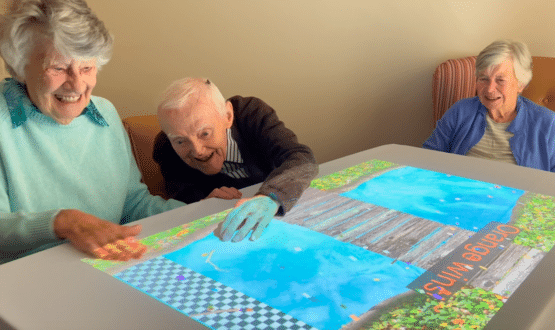University of Edinburgh joins collaborative for dementia digital solutions
- 31 July 2023

The University of Edinburgh has joined the NEURii collaboration, which will explore the use of data and digital solutions to complement treatment options for people living with dementia.
NEURii hopes to solve issues that relate to the prediction, prevention, management and treatment of dementia. It will do so by translating world-class data, neurology and digital sciences into projects.
The collaboration will use high-quality data, artificial intelligence and machine learning to deliver initial pilot projects. It will create innovative digital solutions by combining diverse digital biomarkers collected in real-world clinical and non-clinical settings – such as speech – and analysing them with tailored AI algorithms.
As well as the University of Edinburgh, the collaboration involves global pharmaceutical company Eisai, Bill Gates’ private offices Gates Ventures, Health Data Research UK and medical research not-for-profit LifeArc. It was formalised and will be managed by the commercialisation service at the University of Edinburgh, Edinburgh Innovations.
Dr Andrea Taylor, head of strategic partnerships at Edinburgh Innovations, said: “We hope that by bringing together data with global research and industry expertise in this way, we will be eventually able to tackle dementia earlier, at a pre-symptomatic stage, reducing the impacts on society and improving the lives of patients and others affected by this cruel condition.”
By identifying data-driven solutions that could complement existing treatment, the collaboration could help to improve earlier detection and diagnosis, evidence-based treatment decision-making, monitoring of disease progression and maintenance of quality of life.
As well as measuring the impact of these projects, NEURii will explore opportunities that exist to scale up its digital health efforts across the UK and globally.
Dr Niranjan Bose, managing director of health & life sciences at Gates Ventures, said: “AI and other advanced technologies are beginning to play a powerful role in medical research. I’m excited about how the NEURii collaboration will apply these tools to diagnostics research and drug discovery, and contribute to breakthroughs that can improve life for millions of people suffering with dementia and dementia-related illnesses.”
AI has been applied to dementia diagnosis previously. In 2021, a patient at Addenbrooke’s Hospital in Cambridge was one of the first people in the country to take part in the QMIN-MC Trial – which used AI to help diagnose and treat Alzheimer’s disease.





1 Comments
It’s a great step forward and may be very useful for people in India. Congratulations for continuing the BITSEAN spirit
Comments are closed.